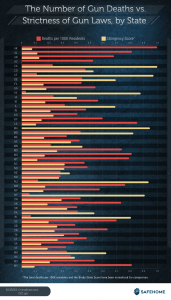A controversy is developing among the AAS membership with regard to the AAS-in-Asia conference in Delhi, following the decision of the Ministry of External Affairs (MEA) of the Government of India to deny visas to all Pakistani scholars. The AAS-in-Asia conferences began as an experiment four years ago. Two questions now face our membership: 1) Should the experiment to hold AAS-in-Asia conferences be terminated? and 2) How should AAS handle the current situation?
With regard to the first question, AAS members need to consider two sets of difficulties that arise in holding AAS conferences in Asia. The first is finding host institutions that are willing to provide the faculty, administrative staffing, and funding involved in organizing a conference that is now being attended by some 1,000 scholars. This is a challenge everywhere: even the smaller regional conferences affiliated with AAS stateside are finding it difficult in this age of budget cutbacks to find campuses willing to serve as host institutions. Securing a partner for a much larger event involves extended discussion of logistics, responsibilities, and finances.
The second major set of problems is political. With the possible exception of one or two countries in Asia, it is difficult to find a politically uncomplicated country to serve as a conference venue, so that issues of visas and academic freedom do not arise. As we know, the problem is no less acute in the U.S., where the latest iteration of the federal government’s travel ban puts restrictions on visitors from five predominantly Muslim countries and adds limits on certain travelers from two non-Muslim countries.
With regard to the second set of problems, AAS is coming under attack for two reasons: 1) for its decision to proceed with the conference being co-hosted by Ashoka University and 2) for the AAS’s failure to inform its members as soon as it learned of the Indian government’s decision not to grant visas to any scholars from Pakistan.
AAS and Ashoka University have been working on this conference since 2014. The AAS board felt that it was important to rotate the conference across the four regions into which AAS is divided, to counter the apparent East Asia bias in the previous conferences, which were held in Singapore, Taiwan, Japan, and South Korea. Despite the many dynamic educational institutions and exciting scholarly research being carried out in South Asia, few scholars from that large region had been participating in the AAS-in-Asia conferences. When faculty and administrators at Ashoka University said they were willing to take on this responsibility, AAS was delighted. The board felt that Ashoka’s offer was an exciting opportunity to deepen scholarly exchanges across Asia , and we agreed to use a multi-tiered fee structure that made participation less expensive for scholars from South Asian (and some other) countries.
The AAS board did discuss issues of academic freedom prior to signing a memorandum of understanding with Ashoka University. Ashoka was firm in its commitment to the selection of panels on the basis of academic merit and breadth of participation across institutions and countries. These principles were honored in the selection of panels. We also raised the question of the difficulty of obtaining visas for individual scholars to travel to India; we did not, however, anticipate a blanket refusal to issue visas to all scholars from a given country. Nor did we know that the Indian government would also include in this prohibition people of Pakistani origin who hold other passports.
As soon as we learned of the MEA’s decision in early March of this year, back-channel efforts were begun to have the MEA’s blanket ruling reversed. In the third week of March, the Pakistani scholars whose panels had been selected for presentation at the conference (a total of eight people) were informed about the MEA ruling. They were offered the option of presenting their papers via Skype, as a way of ensuring our commitment to academic freedom and salvaging their valuable contributions as far as possible despite the MEA’s ruling. The MEA letter was posted on the conference website on March 6, and the subsequent letter from the Home Ministry, which arrived on April 6, was posted on April 9.
Scholars are now signing a petition not only denouncing the Indian government but also criticizing the way AAS has handled the situation and calling for us to cancel the conference. We acknowledge and understand those who question how AAS has handled the situation, and we respect their views as to how we should deal with it now. For those aware of the history between India and Pakistan, the fact that the MEA has denied visas to Pakistani scholars is, however reprehensible, not unexpected, given the tensions, border skirmishes, and three full wars between the two countries over the past seventy years. Knowing that there was even a possibility that the Indian government would deny visas, should AAS never have agreed to work with an Indian university to hold AAS-in-Asia in India? Further, knowing that there are political complications involved in virtually every country in Asia, should the AAS-in-Asia experiment be terminated?
While there are financial costs in canceling a conference for which reservations were made over a year in advance, there is a broader question to be addressed: Is there merit in working with Asian institutions in the hope of helping to strengthen academic freedoms and civil society, recognizing the contexts of current limitations? We might also go further to ask if scholars should refuse to participate in international conferences held in any country with problematic government policies. This would include the U.S., which has a blanket ban on potential participants from seven countries.
The current officers of the Association are in agreement with those among our members who urge us to oppose restrictions on scholarly exchange across borders and to challenge such restrictions wherever possible. At the same time, we recognize the complex political climates in which many of our colleagues function. We believe that fostering intellectual exchange is often the best means of support, even though in many instances this will involve compromises rather than stances of absolute moral purity.
Media Reports on This Issue
The Wire (India), “Ban on Pak Scholars Against Open Exchange of Ideas: Asian Studies Conference Organisers”
Inside Higher Ed (United States), “No Pakistani Scholars Allowed”







